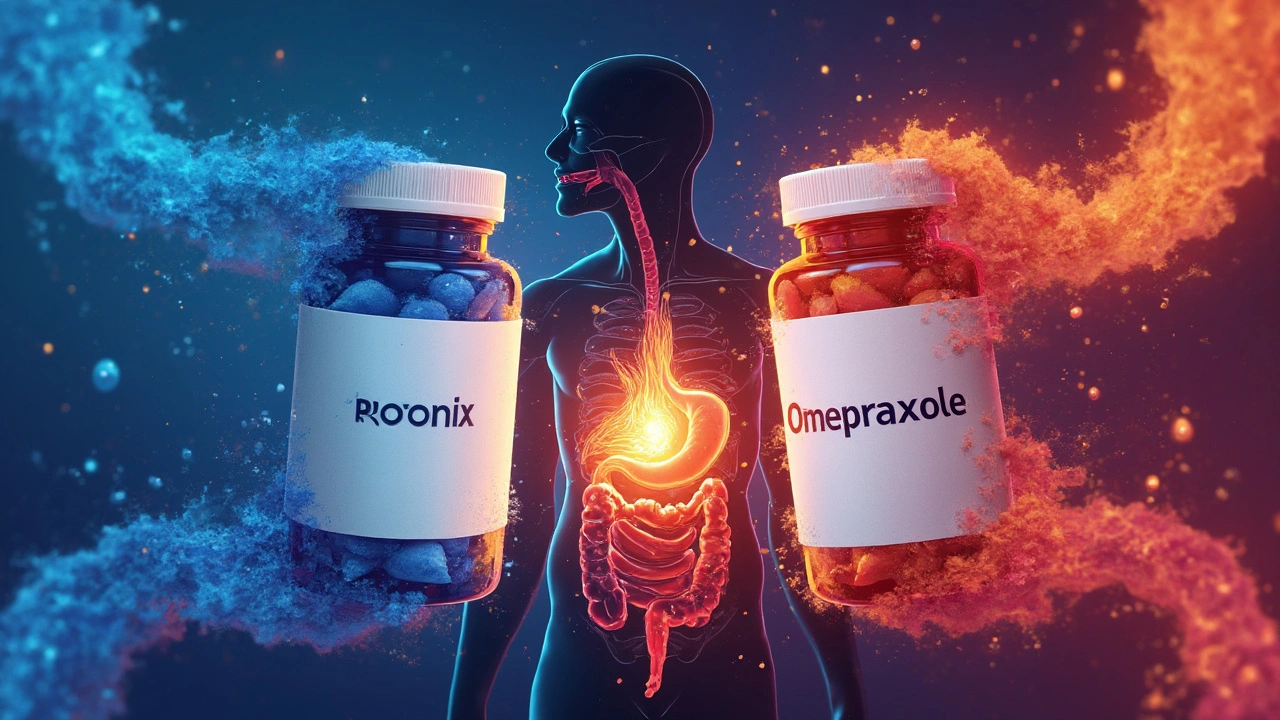Acid Suppression: What It Is and Why It Matters
Ever felt a burning feeling after a big meal or woke up with a sour taste? That’s stomach acid getting out of balance. Acid suppression means using medicines that lower the amount of acid your stomach makes, so you feel better and your esophagus stops getting irritated.
Doctors usually recommend it for conditions like gastro‑esophageal reflux disease (GERD), stomach ulcers, and occasional heartburn. The goal isn’t to stop acid forever—your stomach needs some acid to digest food—but to keep the level low enough that it doesn’t hurt your lining.
How Common Acid‑Suppressing Meds Work
There are three main groups you’ll hear about: antacids, H2 blockers, and proton‑pump inhibitors (PPIs). Antacids, such as Tums or Maalox, are quick‑acting powders that neutralize acid already in the stomach. They’re great for sudden flare‑ups but don’t last long.
H2 blockers, like ranitidine or famotidine, lower acid production by blocking histamine signals. They start working within an hour and can protect you for several hours. PPIs—omeprazole, esomeprazole, pantoprazole—are the strongest. They block the final step of acid creation, so the stomach makes far less acid for up to 24 hours. That’s why doctors often prescribe PPIs for chronic GERD or ulcer healing.
Each type has a sweet spot. If you only need relief after a spicy dinner, an antacid does the job. If you’ve got frequent heartburn, an H2 blocker or low‑dose PPI can keep symptoms at bay. The key is matching the drug to how often you need relief.
Choosing and Using Acid Suppressors Safely
Start with the lowest dose that works. Too much acid suppression can lead to side effects like nutrient deficiencies, especially B12 and magnesium, or increase infection risk. That’s why doctors usually limit long‑term PPI use to the shortest period necessary.
Take PPIs 30 minutes before breakfast. Food can raise stomach pH and make the drug less effective if you take it later. H2 blockers work best if you take them at night or two hours after a big meal. Antacids can be taken any time, but avoid mixing them with other meds—wait at least two hours.
If you’re buying a generic version online, check that the pharmacy is licensed and requires a prescription. Look for clear pricing, reasonable shipping, and a contact number. Never rely on a site that promises “no prescription needed” for a prescription‑only drug.
Watch for warning signs: persistent nausea, new stomach pain, or unexplained weight loss. Those could mean the underlying condition needs a different approach. Talk to your doctor before stopping a PPI suddenly; a gradual taper usually prevents rebound acid surge.
Finally, lifestyle tweaks can boost medication results. Raise the head of your bed a few inches, avoid lying down for an hour after meals, and cut back on caffeine, alcohol, and big fatty meals. When you combine smart drug use with simple habits, acid suppression becomes a tool—not a crutch—to keep your gut comfortable.

